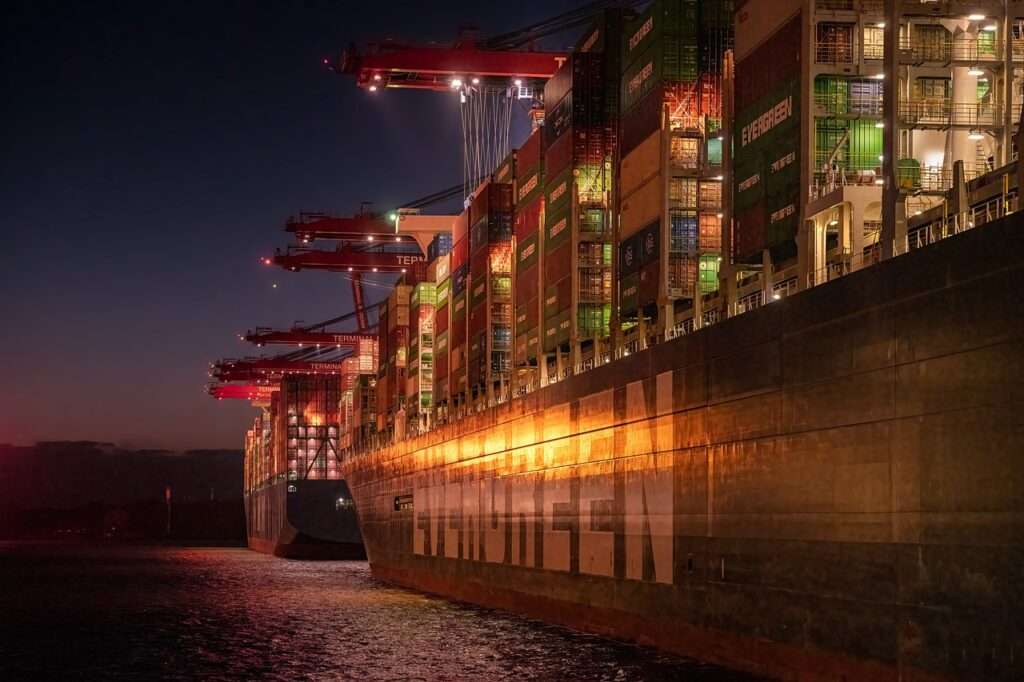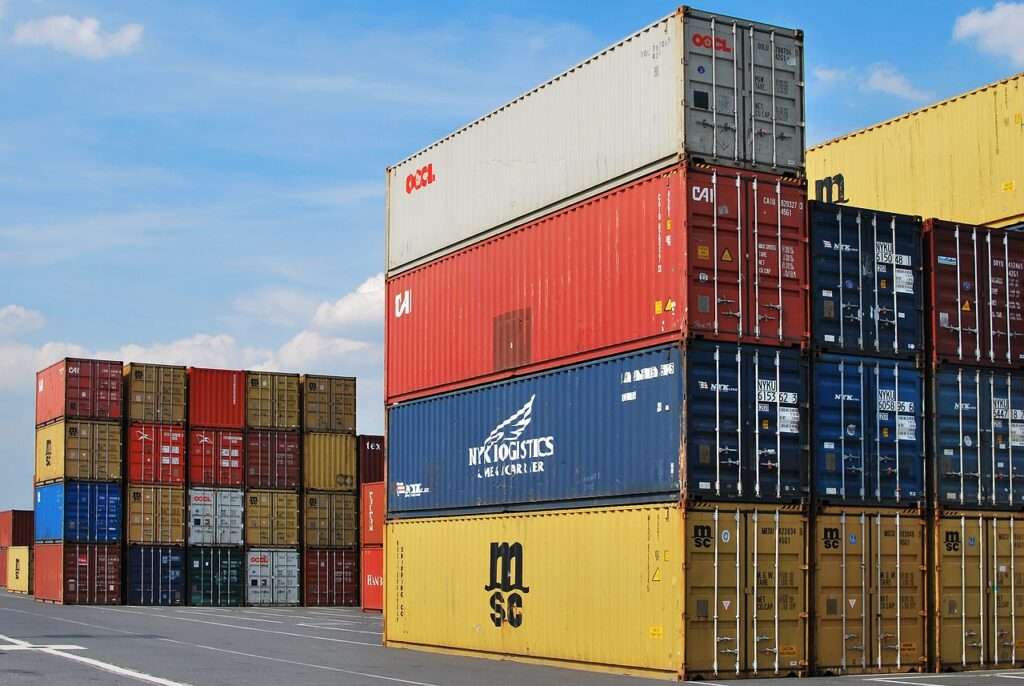In the realm of off-grid living, an intriguing question arises: is owning shipping containers profitable? As individuals seek alternative housing solutions that are both sustainable and cost-effective, shipping containers have emerged as a viable option. A deep exploration of this subject promises to shed light on the potential financial benefits that come with owning these versatile containers. By examining the growing interest in off-grid living and the economic factors at play, we can uncover whether investing in shipping containers holds promise for those seeking profitable ventures in this modern era.
Factors to Consider for Owning Shipping Containers

Purchase Cost
When considering the investment in shipping containers, the initial purchase cost is a crucial factor to evaluate. The purchase of shipping containers can vary significantly depending on factors such as the container’s condition, size, age, and location.
The cost of a new shipping container can range anywhere from $2,000 to $5,000, depending on the size and other specifications. On the other hand, used containers may come with a lower price tag, with prices ranging from $1,000 to $3,000. It is important to carefully assess the condition of used containers before purchasing, as potential repairs and maintenance costs may arise.
Maintenance
Maintenance is another important factor to consider in the context of owning shipping containers. While these containers are designed to withstand harsh conditions and the challenges of international shipping, regular maintenance is still necessary to extend their lifespan and ensure structural integrity.
Routine inspections should be conducted to identify any signs of corrosion, rust, or damage. Basic maintenance tasks include cleaning the container, inspecting seals and hinges, repainting as necessary, and addressing any structural issues promptly. These maintenance efforts not only prolong the container’s life but also help maintain its value and reduce repair costs in the long run.
Transportation Costs
Transportation costs can significantly impact the overall profitability of owning shipping containers. When purchasing containers, it is crucial to consider the logistics and expenses involved in their transportation to the desired location.
These costs encompass not only the initial transport from the seller to the buyer but also the ongoing expenses associated with moving containers to different locations or renting them out to customers. Depending on the distance, container size, mode of transportation, and additional services required (such as loading and unloading), transportation costs can vary significantly. Therefore, a thorough analysis of transportation expenses is essential when assessing the potential profitability of owning shipping containers.
Storage Costs
Proper storage is essential for maintaining the condition and value of shipping containers. Considering the bulky nature of these containers, suitable storage space must be secured to avoid unnecessary wear and tear or damage.
Storage costs can vary depending on factors such as location, accessibility, security measures, and available amenities. Some container owners choose to rent storage space, while others invest in constructing their own storage facility. In either case, costs associated with storage must be factored into the overall expenses of owning shipping containers.

Insurance
Insurance is a critical aspect of owning shipping containers, as it offers financial protection against unforeseen events and potential liabilities. It is essential to obtain comprehensive insurance coverage that protects against damage, theft, natural disasters, and liability issues.
The cost of insurance can vary depending on various factors, including the value and number of containers being insured, location, security measures, and coverage limits. Proper insurance coverage is vital in mitigating potential risks and ensuring the financial viability of owning shipping containers.
Profit Opportunities with Shipping Containers
Renting Shipping Containers
One profitable avenue for shipping container ownership is renting them out to individuals or businesses in need of temporary storage solutions. Renting shipping containers has gained popularity in recent years due to their versatility and cost-effectiveness.
Potential renters include construction companies, event organizers, entrepreneurs, and homeowners in need of extra storage space or temporary facilities. By marketing container rentals and ensuring customer satisfaction, container owners can generate regular income streams that can cover the initial investment and potentially yield profits.

Container Homes
Another lucrative profit opportunity lies in the field of container homes. The concept of repurposing shipping containers as eco-friendly, cost-effective housing alternatives has gained traction around the world.
Container homes offer a sustainable solution by repurposing the robust structures of shipping containers into livable spaces. They provide a more affordable housing option compared to traditional construction methods, and their modular nature allows for easy customization and scalability. By investing in the construction of container homes, individuals can tap into the growing demand for affordable housing while turning a profit.
Container Farms
Container farming is an emerging trend that presents a unique profit opportunity for shipping container owners. Particularly in urban settings, where limited space and environmental constraints hinder traditional agriculture, container farms offer innovative solutions.
With the right set up, container farming enables year-round cultivation of crops in a controlled environment. The modularity and mobility of shipping containers make them an ideal foundation for these enclosed farming systems. By investing in the necessary equipment and technologies, such as hydroponics or vertical farming systems, container owners can engage in urban agriculture and supply fresh produce to local markets, restaurants, and grocery stores.
Pop-up Stores
The rise of the retail industry has witnessed the popularization of pop-up stores, which are temporary retail locations that allow brands to create unique shopping experiences and generate buzz. Shipping containers provide an excellent platform for creating these mobile and customizable pop-up stores.
By investing in the customization and outfitting of shipping containers with attractive designs, premium finishes, and necessary fixtures, container owners can offer turnkey solutions to brands and entrepreneurs looking to establish temporary retail spaces. The versatility and portability of shipping containers make them an attractive option for pop-up stores, allowing businesses to reach different locations and target audiences, thereby generating profit for both the container owners and the tenants.
Case Studies: Successful Container Businesses
Container Leasing Companies
Container leasing companies have emerged as successful enterprises in the shipping container industry. These companies specialize in leasing out shipping containers to various businesses and individuals for both short-term and long-term periods.
These companies acquire shipping containers in bulk and lease them out to customers, enabling them to generate consistent income streams. With careful management, container leasing companies can optimize the utilization of their containers, ensuring maximum profitability. By maintaining a diverse clientele base and adapting to the evolving market demands, these companies can achieve long-term success in the container leasing sector.
Container Architecture Firms
Container architecture has gained considerable recognition over the years, and container architecture firms have capitalized on this growing demand for innovative and sustainable building solutions. These firms specialize in designing and constructing structures using shipping containers as building blocks.
By leveraging the design flexibility and cost-efficiency of shipping containers, container architecture firms have successfully completed various projects, including residential buildings, office spaces, and even community centers. By demonstrating the strength, durability, and charm of container buildings, these firms have gained recognition and secured profitable contracts.
Challenges and Risks of Owning Shipping Containers
Market Saturation
One significant challenge in the shipping container industry is market saturation. As the popularity of shipping containers as alternative building materials and storage solutions increases, the market may become saturated with competing businesses and individuals seeking to profit from the same opportunities.
When the market becomes saturated, securing customers and ensuring profitability become more challenging. Container owners must differentiate themselves by offering unique services, superior quality, competitive pricing, and exceptional customer experience to outperform their competitors.
Economic Factors
Economic factors, such as fluctuations in the global economy, can pose risks to the profitability of owning shipping containers. Economic recessions or downturns can affect industries that rely on containerized shipping, which, in turn, can impact the demand for shipping containers.
Changes in consumer spending habits, trade policies, and geopolitical factors can also influence shipping container demand and profitability. Container owners must stay informed about market trends and economic indicators to adapt their strategies and mitigate potential financial risks.
Legal and Regulatory Issues
Ownership of shipping containers involves compliance with various legal and regulatory requirements. These requirements can vary depending on factors such as location, intended use, and local regulations.
Zoning laws, building codes, permits, and certifications may need to be considered when using shipping containers for construction purposes. Additionally, owners must adhere to environmental regulations, safety guidelines, and transportation regulations when transporting or storing shipping containers. Ignoring or neglecting these legal and regulatory aspects can lead to penalties, fines, or even legal disputes, impacting the profitability and sustainability of container businesses.
Conclusion
Owning shipping containers can present profitable opportunities for individuals and businesses alike. However, careful consideration of factors such as purchase cost, maintenance, transportation costs, storage costs, and insurance is paramount. Opportunities such as renting containers, creating container homes, container farming, and pop-up stores can yield significant returns on investment. It is important to study successful case studies and learn from established container leasing companies and container architecture firms. Nonetheless, challenges and risks, including market saturation, economic factors, and legal complexities, must be carefully addressed to ensure long-term profitability and success in the shipping container industry.




